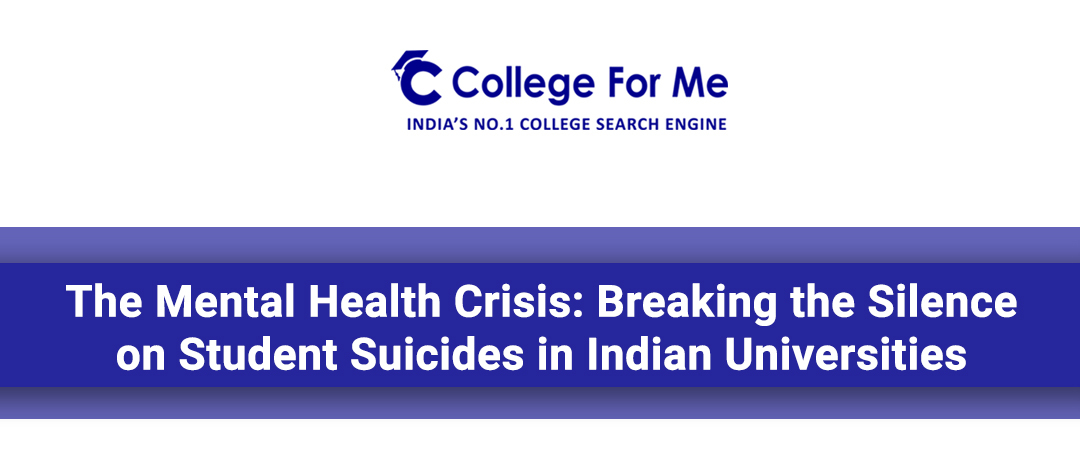Career Scopes Of A B.Tech. Student
There is a high demand for B.Tech. degree holders in the private sector, yet, there is also the opti...

In the bustling campuses of Indian universities, beneath the façade of academic excellence and youthful exuberance, a silent crisis lurks—the mental health crisis among students. It's a topic often whispered about but rarely discussed openly. In this blog post, we confront the stark reality of student suicides in Indian universities, shedding light on the mental health challenges faced by students. By breaking the silence, we aim to raise awareness, encourage dialogue, and advocate for change. Together, let’s address this pressing issue and work towards creating a supportive environment where every student's well-being is a priority.
The Silent Struggles:
Behind the vibrant smiles and academic achievements, many students battle internal demons. The pressure to excel, cope with societal expectations, and navigate personal challenges often becomes overwhelming. The burden of stress, anxiety, and depression can lead them to the brink of despair.
The Stigma Surrounding Mental Health:
Despite growing awareness, mental health issues in India are often stigmatized. Students fear judgment, isolation, and discrimination if they admit to their struggles. This stigma acts as a barrier, preventing them from seeking the help they desperately need.
The Role of Academic Stress:
The competitive nature of Indian education intensifies the stress. Rigorous coursework, looming deadlines, and the fear of failure create an environment where mental health often takes a backseat. The pressure cooker atmosphere of academic pursuits can erode students’ mental well-being.
The Importance of Breaking the Silence:
- Encouraging Open Conversations: It's vital to create spaces where students can openly discuss mental health. Encouraging dialogues in classrooms, dorms, and counseling centers can shatter the silence, allowing students to share their struggles without fear.
- Raising Awareness: Education and awareness campaigns can dispel myths surrounding mental health. workshops, seminars, and awareness drives can inform students about common mental health issues, and available resources, and destigmatize seeking help.
- Expanding University Counseling Services: Universities must invest in comprehensive and accessible mental health services. Trained counselors, psychologists, and therapists can provide much-needed support to students, guiding them through their challenges.
- Promoting Peer Support Networks: Peer support groups and mentoring programs can create a sense of community. Knowing that others have gone through similar struggles and emerged stronger can be immensely comforting.
- Training Faculty and Staff: Educators and university staff should receive training in recognizing signs of mental distress. Their understanding and support can make a significant difference in a student's life.
A Call for Compassion and Understanding:
Breaking the silence on student suicides and the broader mental health crisis in Indian universities is not just a responsibility; it’s an urgent necessity. By fostering a culture of openness, understanding, and empathy, we can create an environment where students feel supported, valued, and heard. Every conversation, every act of kindness, and every effort to raise awareness can potentially save a life. Together, let’s dismantle the stigma, amplify the dialogue, and build a future where every student’s mental health is prioritized. Remember, it’s in our collective compassion that we find the strength to heal, nurture, and uplift those in need.

There is a high demand for B.Tech. degree holders in the private sector, yet, there is also the opti...

If you are looking for a bright and prospective career, then getting a B.Tech. in CSE must be under ...
Comments (0)